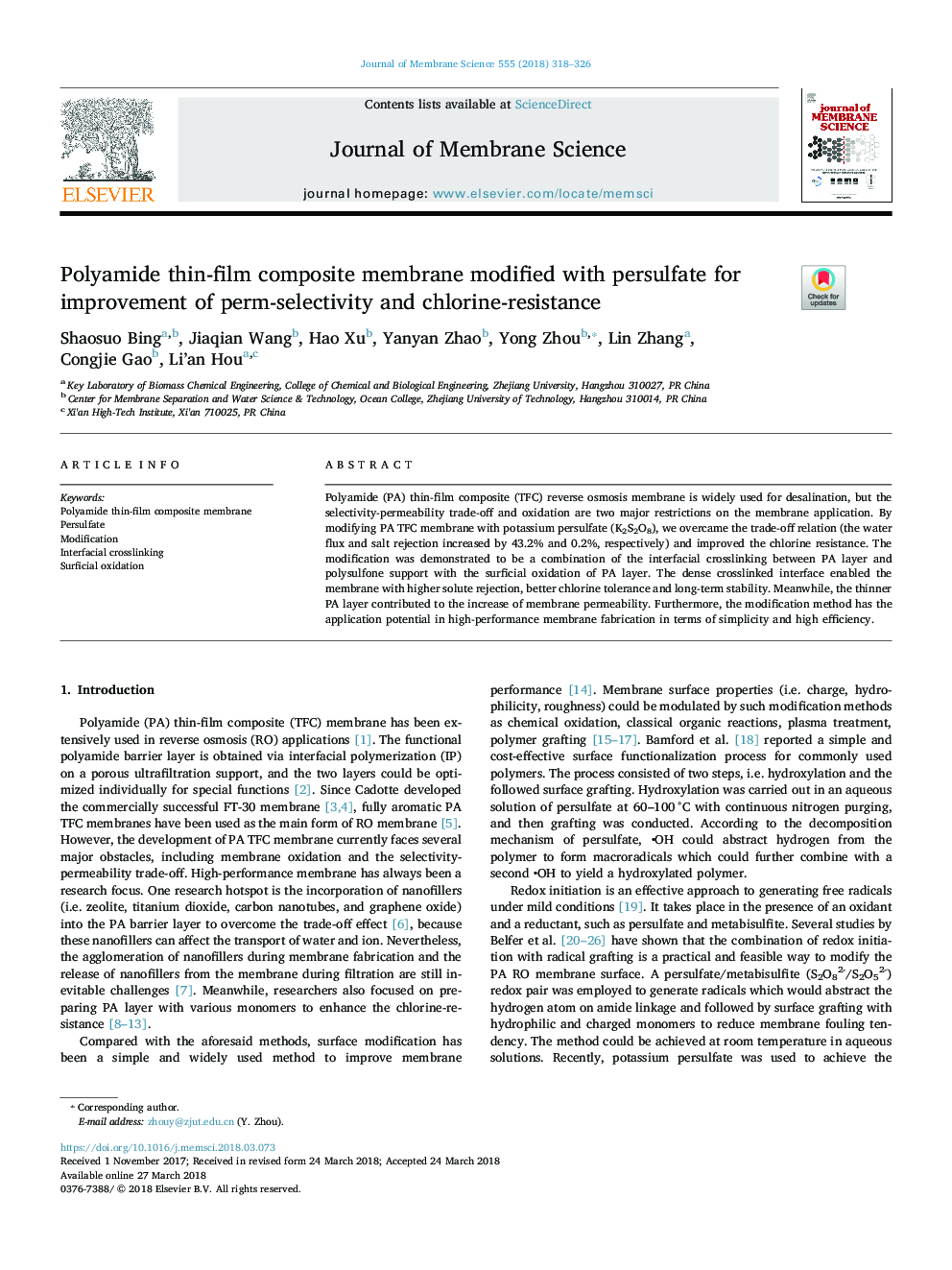| Article ID | Journal | Published Year | Pages | File Type |
|---|---|---|---|---|
| 7019925 | Journal of Membrane Science | 2018 | 9 Pages |
Abstract
Polyamide (PA) thin-film composite (TFC) reverse osmosis membrane is widely used for desalination, but the selectivity-permeability trade-off and oxidation are two major restrictions on the membrane application. By modifying PA TFC membrane with potassium persulfate (K2S2O8), we overcame the trade-off relation (the water flux and salt rejection increased by 43.2% and 0.2%, respectively) and improved the chlorine resistance. The modification was demonstrated to be a combination of the interfacial crosslinking between PA layer and polysulfone support with the surficial oxidation of PA layer. The dense crosslinked interface enabled the membrane with higher solute rejection, better chlorine tolerance and long-term stability. Meanwhile, the thinner PA layer contributed to the increase of membrane permeability. Furthermore, the modification method has the application potential in high-performance membrane fabrication in terms of simplicity and high efficiency.
Related Topics
Physical Sciences and Engineering
Chemical Engineering
Filtration and Separation
Authors
Shaosuo Bing, Jiaqian Wang, Hao Xu, Yanyan Zhao, Yong Zhou, Lin Zhang, Congjie Gao, Li'an Hou,
